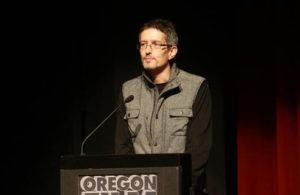How To Become A Video Game Technical Director

For every job in the video game industry, there’s a natural career progression as you gain experience over the years.
For video game programmers (also called engineers) there are typically two options. One path is to become a senior engineer and take on more challenging projects. The other is to become a technical lead, possibly increasing in scope to eventually lead multiple engineering teams and projects.
That second path — the engineering-leadership path — is a job called the Technical Director.
Today we’re speaking with Dan White, a highly-experienced Technical Director in the video game industry. He’s been making games since 1995, and in 1999 he started a game studio that’s still going strong today. We ask him what it takes to become a Technical Director, why management is rewarding, and how you can start your own career in video game engineering. Read more »





